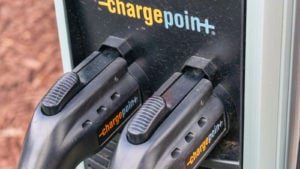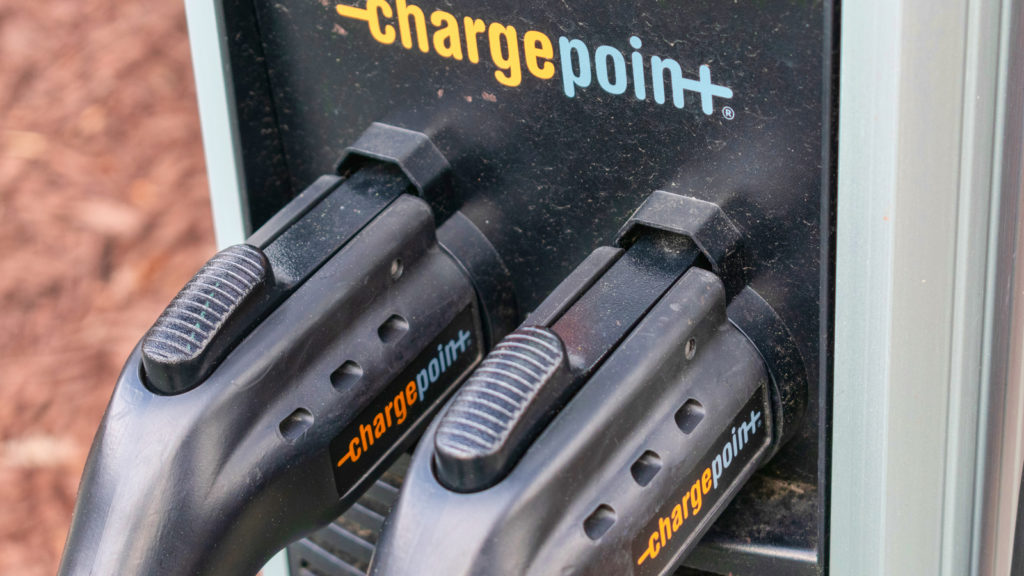If the sole basis of return on investment was based on narratives, you’d be hard-pressed to find a better opportunity than Switchback Energy (NYSE:SBE), the special purpose acquisition company (SPAC) that will merge with electric vehicle charging station provider ChargePoint. As everyone seems to state, EVs are the future. Logically, then, SBE stock is like selling tickets to the big game.

Sure, gambling on individual EV brands such as Tesla (NASDAQ:TSLA) or Nio (NYSE:NIO) is undoubtedly the sexier approach and likely the one with the higher profit potential. However, there’s no such thing as a gambler with a perfect record. Instead, wagering on sports is a numbers game – much like investing.
However, SBE stock is a little bit different from the aspirational technology investments available. On paper, ChargePoint is a “derivative” investment in the same vein of Hertz Global (OCTMKTS:HTZGQ). Hertz depends on air travel and a generally robust transportation ecosystem. No passengers means no business for Hertz.
Similarly, if EV sales plummet, SBE stock won’t be in good shape. However, the difference between ChargePoint and a car rental agency is that EVs will hit a sales ceiling without an expanding infrastructure rollout. Thus, while ChargePoint does depend on EV sales, in many ways, EV sales – particularly those for middle-income households – also depend on ChargePoint.
Therefore, as consumers make the transition to electric transportation, they’ll want to see the matchup that the EV charging station is providing. To extend my sports analogy, ChargePoint is basically the Super Bowl of business opportunities – you’re not going to find too many tickets that won’t find a home.
Of course, that was before the Texas winter storm devastated the Lone Star State. Suddenly, the upside argument for ChargePoint isn’t quite as clear as it used to be.
Grid Anxiety Is a New Concern for SBE Stock
Although the catalysts for the grid going down in Texas are multiple and varied, it didn’t take too long before partisan talking heads decided to blame the renewable energy rollout for the devastation. From my perspective, I don’t see how the incident makes Democrats or Republicans look good.
Largely, I believe the grid failure comes down to profiteering and ignoring warning signs about America’s crumbling infrastructure, a problem that was brewing well before the novel coronavirus or even former President Trump’s administration. Still, the optics don’t do any favors for SBE stock.
You see, what I’ve learned from living in the U.S. for most of my life is that Americans generally – not all, so please don’t email me about that – view the world in binary terms: black and white, good guys versus bad guys and little to no nuance.
Therefore, it’s tough not to put two and two together and view the intermediate-length case for SBE stock as a negative. Just look at the technical charts for some key stocks – fossil fuels are back in vogue. Renewable- and clean-energy-related investments? Not so much.
In other words, the consumers that were gung-ho on going EV in January are now reconsidering their intentions in February. Why? It’s a new concept called grid anxiety.
Now, you might say that a notion like grid anxiety is ridiculous. But is it, though? After the 9/11 attack, Americans developed Middle Eastern anxiety even though domestic terrorism is just as fundamentally a concern as foreign-sourced terrorism.
Or think back more recently. In the wake of the Covid-19 pandemic, Americans developed Chinese restaurant anxiety. I mean, it’s really impressive in a way that some folks are so stupidly bigoted that they believe going to a Chinese restaurant in the U.S. puts them at greater risk of getting Covid.
But the Texas storm isn’t going to affect SBE stock? Come on. Let’s be real here.
Consumer Demographics Also Matters
Why I’m suddenly concerned about SBE stock is the underlying consumer target. If EVs were a niche segment – say weekend toys for rich people – it wouldn’t really be necessary for charging station providers to build out infrastructure.
The EV industry wants to build out because it sees the opportunity to comprehensively disrupt combustion-engine cars, but that won’t happen without ample charging stations. We must realize that when we go down the income strata, consumers will have less access to personal infrastructure (i.e. a house with a garage).
However, such middle-income consumers will be the most impacted by a grid disruption if they make the transition to EVs.
Unlike affluent consumers who can afford multiple vehicles of varying types, regular households may be limited in their options because of budgetary constraints. Therefore, seeing the severe disruption in Texas will make this customer base rethink the transition.
That’s not good for EVs. Ultimately, this will filter down as a headwind for SBE stock.
On the date of publication, Josh Enomoto did not have (either directly or indirectly) any positions in the securities mentioned in this article.
A former senior business analyst for Sony Electronics, Josh Enomoto has helped broker major contracts with Fortune Global 500 companies. Over the past several years, he has delivered unique, critical insights for the investment markets, as well as various other industries including legal, construction management, and healthcare.
